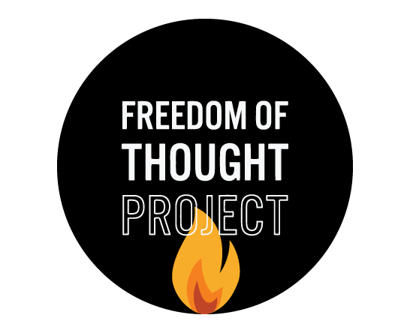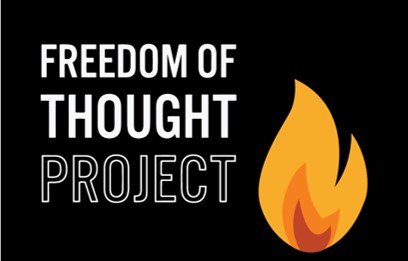1127 Connecticut Ave NW
Washington, DC 20036

Thursday, June 20, 2024
9:00 AM - 6:15 PM ET

Where:
The Mayflower Hotel, Autograph Collection
1127 Connecticut Ave NW
Washington, DC 20036
When:
Thursday, June 20th, 2024
9:00 AM – 6:15 PM ET
Cost (Member/Non-Member):
Conference Only - Free
WAITLIST for Conference & Lunch - $25/$50
CLE Add-On - $50
Event Schedule:
Panel 1: Did James Madison Think Corporations Were People Too?
9:00am - 10:30 am
How did citizens understand corporate power at the Founding? What were the rights, privileges, and limits on corporations, and how did the rights of corporations compare to those of individual citizens? Should the fact that significant elements of the corporation–including their creation and ability to operate across state lines–were privileges granted by the state affect our thinking on corporate rights? And how does contemporary thinking about corporate rights align with founding-era understandings?
Moderator: Hon. Julius "Jay" Richardson, U.S. Court of Appeals, Fourth Circuit
Panel 2: The Challenge of Citizens United
10:45 am - 12:15pm
How did corporate rights evolve to include expressive constitutional rights akin to those of a natural person? How should we think about constitutional protections for corporate speech promoting commercial interests? Should the degree of alignment between ownership and control affect the constitutional interests of the corporation? Does SEC regulation on shareholder voting interfere with shareholders’ constitutional rights? If substantive rights like freedom of speech operate primarily as limits on government, does it matter whose rights are being protected?
Moderator: Hon. Gregory G. Katsas, U.S. Court of Appeals, District of Columbia Circuit
Luncheon Fireside Chat
*lunch ticket required
12:30 pm - 1:45 pm
Panel 3: Securing the Rights of a Free People
2:00 pm - 3:30 pm
What responsibility do states have in protecting the rights of their citizens? How should we think about rights like the freedom of speech — do rights operate primarily as a limit on government power, or do they protect the natural rights of the citizen? Which framework is more consistent with original understanding? What limits applied to freedoms of speech — to what extent were they regulable by government and for what ends? How were rights defended and enforced?
Moderator: Hon. Kyle Duncan, U.S. Court of Appeals, Fifth Circuit
Panel 4: The NetChoice Problem
3:45 pm - 5:15 pm
We know how to think about government coercion. We have ready and familiar frameworks for evaluating how government power should be exercised against the private individual. But courts and policymakers increasingly are called to mediate between private actors with competing claims to liberty, and the analysis is perhaps more complex and uncertain. How should we evaluate such competing claims and what are the self-governance interests of citizens themselves? Do we have a good framework for resolving conflicting interests of corporations and natural citizens, and what role or responsibility does the state have in resolving those disputes?
Moderator: Hon. Trevor N. McFadden, U.S. District Court, District of Columbia
Closing Reception
5:15 pm - 6:15 pm

How did citizens understand corporate power at the Founding? What were the rights, privileges, and limits on corporations, and how did the rights of corporations compare to those of individual citizens? Should the fact that significant elements of the corporation–including their creation and ability to operate across state lines–were privileges granted by the state affect our thinking on corporate rights? And how does contemporary thinking about corporate rights align with founding-era understandings?

How did corporate rights evolve to include expressive constitutional rights akin to those of a natural person? How should we think about constitutional protections for corporate speech promoting commercial interests? Should the degree of alignment between ownership and control affect the constitutional interests of the corporation? Does SEC regulation on shareholder voting interfere with shareholders’ constitutional rights? If substantive rights like freedom of speech operate primarily as limits on government, does it matter whose rights are being protected?


What responsibility do states have in protecting the rights of their citizens? How should we think about rights like the freedom of speech — do rights operate primarily as a limit on government power, or do they protect the natural rights of the citizen? Which framework is more consistent with original understanding? What limits applied to freedoms of speech — to what extent were they regulable by government and for what ends? How were rights defended and enforced?

We know how to think about government coercion. We have ready and familiar frameworks for evaluating how government power should be exercised against the private individual. But courts and policymakers increasingly are called to mediate between private actors with competing claims to liberty, and the analysis is perhaps more complex and uncertain. How should we evaluate such competing claims and what are the self-governance interests of citizens themselves? Do we have a good framework for resolving conflicting interests of corporations and natural citizens, and what role or responsibility does the state have in resolving those disputes?